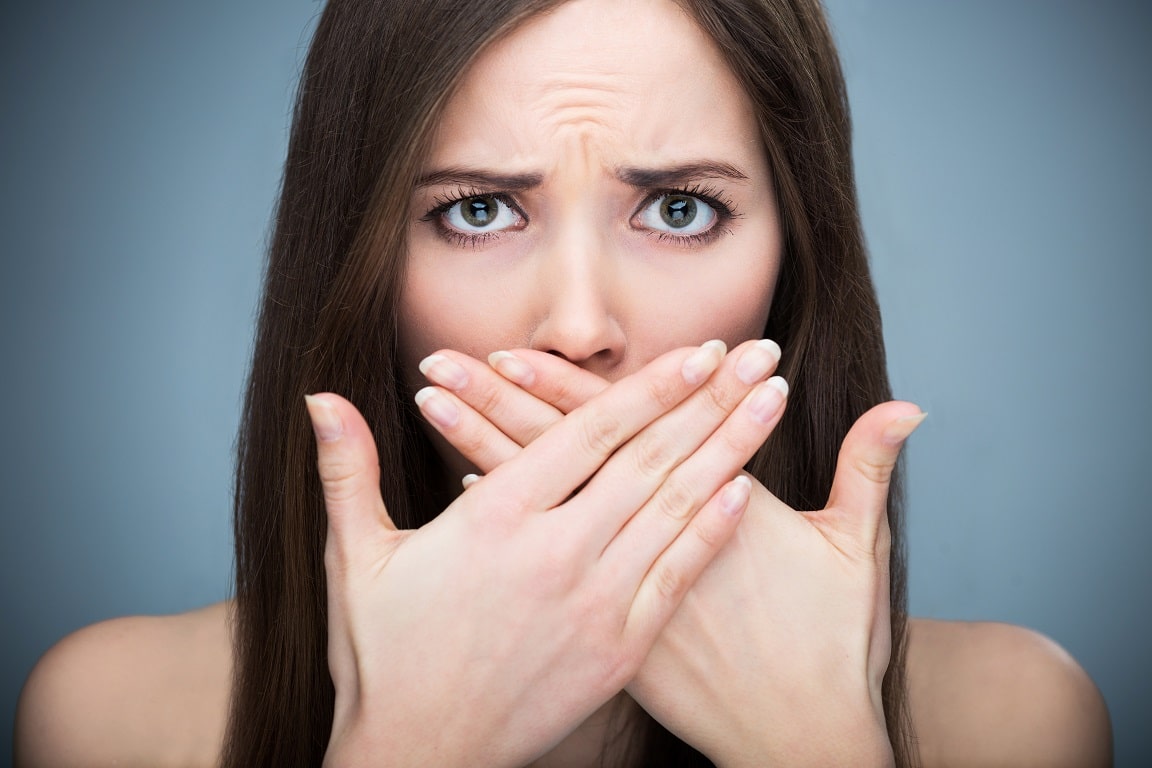Most individuals are incredibly conscious of how they appear to others that they meet, and they usually strive to make a good impression. The quality and condition of our clothes, the health of our body and our friendliness can all affect how others perceive us. There are usually a few things we hope to avoid at all costs–such as unpleasant body odor, food stuck in our teeth and bad breath.
Bad breath, which is also known as halitosis, can undoubtedly be an embarrassing condition to deal with. Unfortunately, many individuals who suffer from bad breath don’t even recognize that they suffer from this condition, and those who do rarely know how to handle it. They may simply resort to chewing gum or breath mints, which may only serve to suppress the condition without effectively addressing or resolving its cause.
What Causes Bad Breath
Contrary to what others may believe, bad breath is not a normal, natural condition that everyone suffers from at one point or another. To be clear, everyone may suffer from bad breath at some point in their life, but this condition should not be considered normal and natural and therefore of no concern. The normal, natural condition is for our breath to be entirely odor-free. Of course, there are certain foods–such as onions and garlic–which can affect the odor of our breath for a brief period of time after consumption and until they are fully processed by our stomachs. This could be considered more of a normal bad breath condition, but it is usually brief and can be aided by brushing one’s teeth following their meal.
Due to the dark, warm and wet condition of our mouth, it is a perfect breeding ground for bacteria. Any lingering food particles combine with this bacteria to form the sticky plaque that coats our teeth and our tongue. When we fail to brush plaque off our teeth and tongue, the food particles and bacteria it contains begin to decay and release a sulfur, which is what causes our bad breath. Obviously, this condition is best resolved by thoroughly brushing your teeth twice a day, flossing your teeth once a day, and visiting your dentist for an examination and professional cleaning every six months.
In addition to brushing and flossing your teeth every day and visiting your dentist every six months, you need to ensure that your mouth remains sufficiently moistened by saliva. Saliva not only helps with the digestion of food, it can help to remove lingering food particles from your mouth after you have eaten a meal and fight harmful oral bacteria and plaque. To this end, it is important to drink enough water each and every day, especially if you take prescription medications that tend to cause dry mouth, and address any salivary gland problems should they arise. Sucking on sugarless candy and chewing sugarless gum can also help to promote healthy saliva production.
Serious health conditions can also cause bad breath. Some examples of these health conditions include diabetes, pneumonia, acid reflux, oral yeast infection, sinus infection, and kidney or liver disease. If you feel that you participate in optimal oral hygiene habits and still suffer from bad breath, you should visit your dentist, Dr. Saferin, so that she can ascertain whether there are any obvious dental symptoms of serious health conditions.
Additional tips for preventing and handling bad breath include:
- Avoid smoking. Cigarette smoking can increase plaque buildup in the mouth, the risk of gum disease and foul breath.
- Use antibacterial mouthwash daily. In addition to twice daily brushing and once daily flossing, antibacterial mouthwash can help to remove harmful oral bacteria and freshen breath.
Of course, it is always wise to speak with your dentist, Dr. Saferin, if you feel that you suffer from bad breath and would like to figure out and resolve the underlying cause for this condition.


